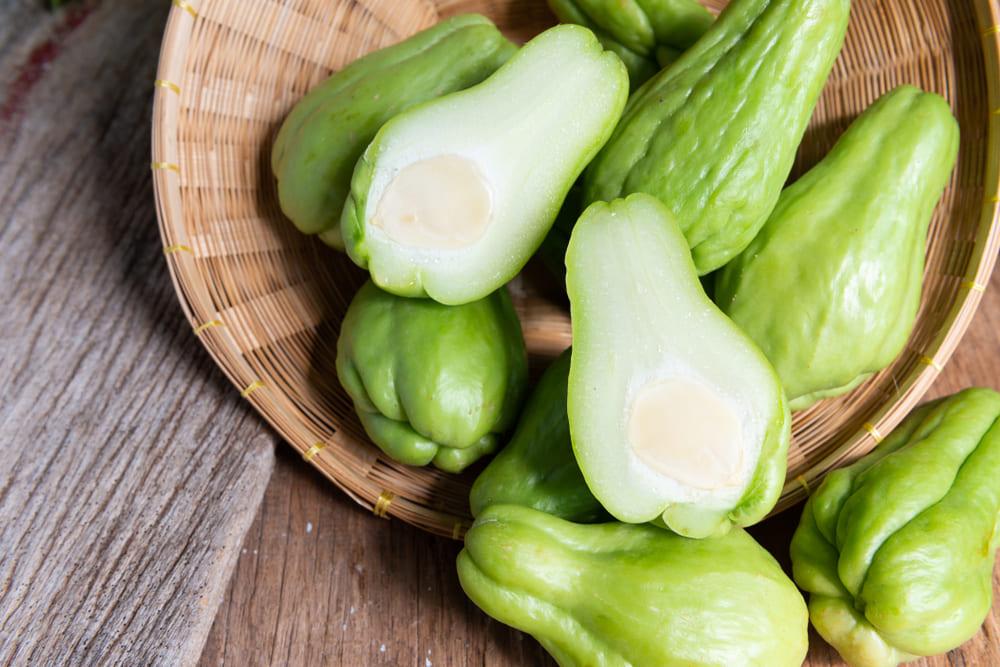Chayote (Sechium edule), also known as vegetable pear, mirliton, or christophene, is a green, wrinkled gourd from the squash family. Popular in Latin American, Asian, and Caribbean cuisines, this versatile vegetable is mild in flavor, easy to cook, and full of nutrients.
Beyond its culinary uses, chayote is valued for its health benefits and medicinal properties.
Let’s take a closer look at its nutritional profile, benefits, and possible contraindications.
Nutritional Properties of Chayote
Chayote is low in calories yet nutrient-dense. In 100 grams, it provides:
- Calories: ~19 kcal
- Vitamins: Vitamin C, vitamin B6, folate, vitamin K
- Minerals: Potassium, magnesium, manganese, zinc, and copper
- Fiber: Good source of dietary fiber
- Antioxidants: Flavonoids and polyphenolic compounds
Its high water content makes it naturally hydrating and refreshing.
Health Benefits of Chayote
1. Supports Heart Health
Rich in potassium and fiber, chayote may help regulate blood pressure and cholesterol levels, lowering the risk of cardiovascular diseases.
2. Aids in Weight Management
With its low calorie and high fiber content, chayote promotes satiety, making it ideal for those aiming to maintain or lose weight.
3. Regulates Blood Sugar
Chayote has a low glycemic index and fiber that slows sugar absorption, which may benefit people with type 2 diabetes or insulin resistance.
4. Boosts Immunity
The vitamin C content strengthens the immune system and protects against infections and oxidative stress.
5. Supports Pregnancy and Fetal Development
Chayote is rich in folate, an essential nutrient for proper cell division and the prevention of neural tube defects during pregnancy.
6. Promotes Healthy Digestion
The fiber in chayote helps prevent constipation, supports gut microbiota, and improves digestive health.
7. Contributes to Skin and Bone Health
Antioxidants and minerals like magnesium and zinc support collagen production, bone density, and healthy aging.
⚠️ Contraindications and Precautions
While chayote is generally safe for most people, a few considerations should be kept in mind:
- Allergic reactions: Rare, but some individuals may develop skin irritation when peeling raw chayote due to its sap. Gloves are recommended when handling.
- Low blood pressure: Since it may help reduce blood pressure, people already on antihypertensive medication should monitor their levels.
- Diabetes medication: Chayote may enhance blood sugar-lowering effects; consult a doctor if you are on treatment for diabetes.
- Overconsumption: Eating very large amounts can sometimes cause mild digestive issues like bloating or gas.

Chayote is a humble vegetable with powerful health benefits. From heart and digestive health to immune support and pregnancy nutrition, it offers a wide range of advantages while being versatile in the kitchen. Whether steamed, sautéed, stuffed, or added to soups and salads, chayote is a nutritious and delicious addition to your diet.
As with all foods, moderation is key—and if you have medical conditions or take prescription medications, it’s always best to check with a healthcare professional before making significant dietary changes.

